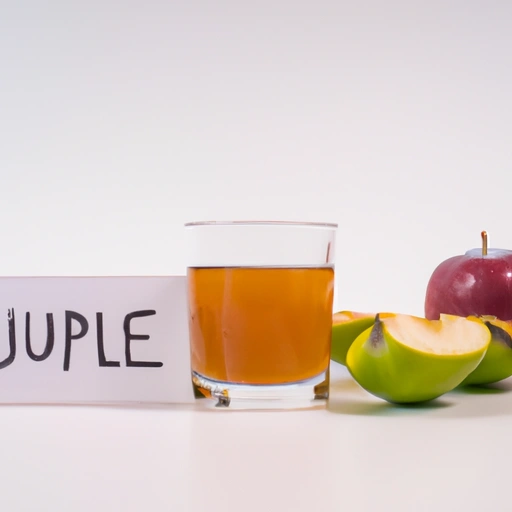Apple Juice
Description

Apple juice is a fruit juice made by macerating and pressing apples. It is a widely consumed beverage that offers a refreshing taste and numerous health benefits. The natural sweetness and tangy flavor make it a popular ingredient in many culinary creations. Apple juice is available in various forms, from clear to cloudy, and can be consumed fresh, concentrated, or as a sweetener in recipes.
Common uses
Apple juice is used as a refreshing drink, both on its own and mixed with other juices. It's also a common addition to smoothies and cocktails. In cooking, it's used as a sweetening agent for sauces and glazes, and in baking, it can add moisture and flavor to cakes, muffins, and more.
Nutritional value
Calories
Typically, one cup (240 ml / 8 fl oz) of apple juice contains approximately 114 calories.
Protein
Apple juice contains a small amount of protein, around 0.1 grams per cup (240 ml / 8 fl oz).
Fat
Apple juice is virtually fat-free, with less than 0.5 grams per cup (240 ml / 8 fl oz).
Carbohydrates
Most of the calories in apple juice come from carbohydrates, primarily sugars, with about 28 grams per cup (240 ml / 8 fl oz).
Vitamins
Apple juice is a good source of vitamin C, providing about 10% of the Daily Value per cup (240 ml / 8 fl oz).
Minerals
It also contains potassium, with one cup (240 ml / 8 fl oz) offering around 5% of the Daily Value.
Health benefits
Apple juice is rich in antioxidants, particularly polyphenols, which may help fight inflammation and improve heart health. The vitamin C content supports the immune system, while the potassium helps to regulate blood pressure.
Potential risks
Excessive consumption of apple juice, which contains high amounts of sugars, could contribute to weight gain, dental cavities, and potentially affect blood sugar levels. It is also low in fiber compared to whole apples.
Common recipes
Apple juice is used in recipes like apple cider, various desserts, and as a marinade for meats. It's also a key ingredient in apple jelly and can be reduced to a syrup for a natural sweetener.
Cooking methods
Apple juice can be used in simmering, baking, or as a base in fermenting beverages like cider.
Pairing with other ingredients
Apple juice pairs well with pork, cinnamon, caramel, and various fruits like orange and cranberry.
Summary
Apple juice is a versatile and popular beverage enjoyed around the world. With its sweet and tangy taste, it has a place in both beverages and culinary recipes. Despite its health benefits, moderation is key due to its sugar content. From its historical roots to its modern-day uses, apple juice continues to be a staple in kitchens worldwide.